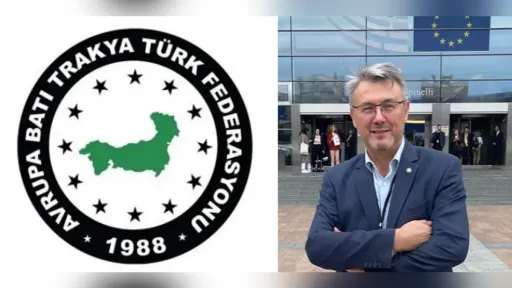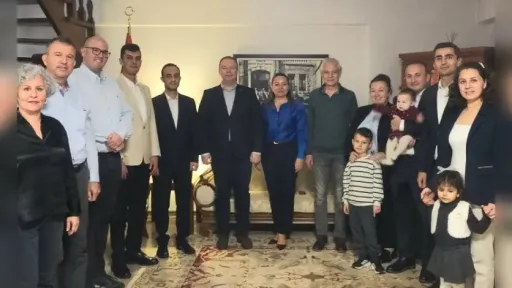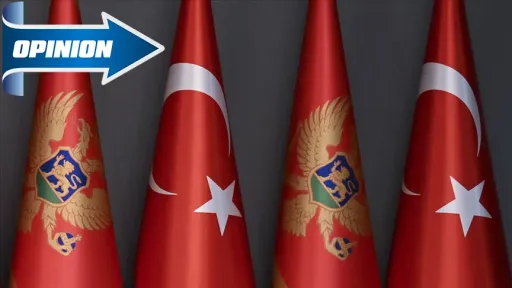A justification: The legal existence of the Minority, Lausanne and a cluster of gradual violations

The Western Thrace Turkish-Muslim Minority, in essence, worship, and perimeter, is a whole. This whole positions its existence over time with a perception of a transcendent and non-temporary reality right at the center of reality, and at the same time gains its legal identity through the relevant provisions of Lausanne (Lausanne Peace Treaty or Lausanne Treaty of Peace, July 24, 1923, Lausanne, Switzerland) and international legal and diplomatic agreements.
Here, we are talking about a social structure in which essence becomes evident through culture, belief, and transmission. Considering this structure as a center and carrier that constantly re-surrounds itself religiously, culturally, and ethnically through daily life, practices, and beliefs, its written certification legally grounds the ongoing existence and meaning struggle of the Western Thrace Turkish-Muslim Minority, referencing a “peace” agreement with Türkiye, the British Empire, France, Italy, Japan, Greece, and other signatory states, as well as certain categories of rights and other legal texts.
The main aim of this approach is to emphasize that, by infringing the legal existence and reality contained in international agreements day by day, the social and cultural erosion attempts and ongoing pressures will be met, each time, with a stance grounded in the rights-based, virtuous, and wise axis of a Turkish and Muslim civil society. The legitimacy of this response derives from legal texts and international agreements, particularly from the truths of religion, identity, and culture. This repetition is intended to help readers understand the minority’s existence, legal foundations, and grounds.
The Lausanne Peace Treaty, which officially and legally incorporated Western Thrace—whose population was ninety percent Turkish and Muslim at the time—into Greece, determines the legal status of the Western Thrace Turkish-Muslim Minority (and the non-Muslim minorities in Türkiye) and guarantees, through mutuality, the rights covered by the treaty. While the treaty was signed and came into force to best preserve the rights it addresses, imposing positive and negative obligations on the signatory states and promoting the rights of minorities, violations occurred over the periods it has been implemented.
These violations have often been explicit, generally continuous, and gradual. Although they have changed form according to the temporal policies of Greek authorities among the Lausanne signatory states, violations can be grouped into several categories.
Considering three issues in the context of Lausanne and agreements: firstly, the minority’s internationally guaranteed rights and identity; secondly, their religious, institutional, and legal structures (muftiate, foundations, associations, and minority schools) and their implementation; and finally, despite all this, the existence of violations—various systematic examples of violations and pressures emerge over different periods. Especially, practices regressing and intensifying have been implemented in terms of religious freedoms, foundation properties, ownership, and education.
The Western Thrace Turkish-Muslim society, which gained its minority legal status through international agreements, has rights under the Lausanne Peace Treaty, the 1913 Athens Agreement, and the domestic laws enacting them. These agreements address fundamental concepts in terms of rights categories, such as religious and conscience freedoms, identity, equality, education, foundations, administration, property, and representation. Articles 37–45 of Lausanne regulate the rights of minorities in Türkiye and Greece (religious freedoms, identity, education, foundations, muftiate) and ensure mutuality (Art. 45) for the Muslim minority living in Greece, i.e., mutual international obligations. The term “Muslim minority” (“müslüman akalliyet”) refers, undoubtedly, to the Turkish-Muslim co-ethnics living in Western Thrace.
The 1913 Athens Agreement, which entered into force before Lausanne, especially ensures respect for life, property, honor, religion, sect, and customs (Art. 11/1); the autonomy and hierarchical organization of the muftiate and Islamic community, including their finances and properties, will not be interfered with (Art. 11/3); each mufti will be elected by Muslim voters living in his region (Art. 11/4); foundation properties will be administered by the Islamic community (Art. 12); minority schools can be preserved, new ones can be established, and their administration will be provided by committees composed of Muslim people (3rd Protocol, Art. 15). Although all these rights are detailed in the relevant provisions of the agreements, sometimes they are not implemented by the state parties.
Currently, Greek authorities do not recognize the ethnic identity of the Western Thrace Turkish-Muslim Minority and base a policy claiming that the minority living here is only “Thracian Muslims,” as Lausanne allegedly envisages only a “religious” identity. However, as expressed throughout this article, the existence of the Western Thrace Turkish-Muslim society is not founded solely on a legal text but on an essence, and this essence, consisting of institutions, practices, and worship, is legally justified through protection and international agreements. Ignoring or denying the beliefs, belonging, and reality of a minority community undermines the bonds constituting its foundation and leads to rights violations.
The issue of closing associations and unions containing the term “Turkish,” which began in 1987 and ended with the European Court of Human Rights’ 2008 decision on the violation of Articles 6/1 and 11 of the European Convention on Human Rights; the non-implementation of ECHR decisions in domestic law; the reactions and decisions of the international community and international courts; efforts of civil society organizations; the “Equal Citizenship and Equality Before the Law” policy declared in 1991; the instrumentalization of law against foundations guaranteed by Lausanne and Athens agreements, including expropriation of foundation properties; violation and incapacitation of ownership and administrative rights; appointment of foundation and school administrators by Greek authorities; ignoring the elected mufti system despite legal recognition of minority members’ right to elect religious leaders (muftis) by both agreements; the closure, inadequacy, and non-establishment of minority schools, lack of qualified staff and teachers, failure to establish administrative and supervisory autonomy; the 1955 Greek Citizenship Law Article 19, which stripped 60,000 people of citizenship (ECRI—European Commission against Racism and Intolerance report), and the non-restoration of citizenship and property rights despite ECHR violation decisions; regional thresholds imposed on political representation and deficiencies in democratic functioning; lack of protection of shared cultural heritage—these are just some of the numerous violations. Although many of these violations have been subject to international court and commission rulings, the contracting parties of the ECHR violate the obligation to implement these decisions. In this context, the right to a fair trial (Art. 6), freedom of religion and belief (Art. 9), freedom of association (Art. 11), prohibition of discrimination (Art. 14), property rights protected by Protocol No. 1, Art. 1, and education rights protected by Protocol No. 1, Art. 2 of the ECHR are continuously violated by ongoing practices.
The ECHR 11th Article on freedom of association and 14th Article on prohibition of discrimination violations in the ECHR case 35151/05 dated October 11, 2007, “Bekir Usta and Others,” and the case 26698/05 dated March 27, 2008, “Turkish Union of Xanthi (Tourkiki Enosi Xanthis),” ruling that association rights and fair trial rights were violated, provide concrete examples of violations. Also, for illustrating the approach of the Greek Council of State, its decisions numbered 2339/2000, 1333/2001, 466/2003, 512/2003, 467/2003 and their references to Article 11 of the 1913 Athens Agreement’s recognition of autonomy versus the contradictory annulment of the election of muftis under Lausanne’s Article 11 should be noted. When examined together, we see an endless cluster of violations, moderated or intensified by temporal policies.
No matter the severity or continuity, the existence of a community built upon values like belief, worship, and identity cannot be expected to be shaken by these violations. When read through the Western Thrace Turkish-Muslim Minority, these violations are undoubtedly met with cohesion and resilience.
As a member of the Western Thrace Turkish-Muslim Minority, positioned in everyday social life, I have tried, from the heart in essence and by technical (rational) method, to convey legal texts, their extensions, and briefly, the violations. Perhaps what remains is the idea that the essence (identity and religious belief), worship (religious and daily practices), and perimeter (legal protections) constitute a whole, and no violation occurring at this perimeter can harm this consistent existence.
Finally, I would like to conclude with words not from classical academic readings or analyses, political confrontations, or over-rationalized assumptions, but with a sometimes most needed, simple and ancient understanding. These words belong to the esteemed religious official Selahattin Kesit in Western Thrace and remind the members of a society pressured by the cluster of violations of the importance of effort and prayer. Because believing precedes knowing:
“We do not know everything; unfortunately, we are living it.”
[1] As can be seen from the Turkish original text of the Lausanne Peace Treaty ratified by the Grand National Assembly of Türkiye on August 23, 1923, and published in the Official Gazette numbered 22, September 10, 1923, Articles 340, 341, 342, 343, while the phrase “non-Muslim minorities” is used for minorities in Türkiye in Article 45 of Lausanne, “Muslim minority” is used for the minority living in Greece.
[2] Full texts of the decisions: Cin, Turgay, Analysis of Greek Council of State Decisions on Existing Muftiates in Western Thrace, Dokuz Eylül University Faculty of Law Journal, Vol: 9, No:1, 2007, pp.65-130, p.69.
[This article was published in the August 2005 issue of İnsicam magazine as part of the Western Thrace dossier.]







